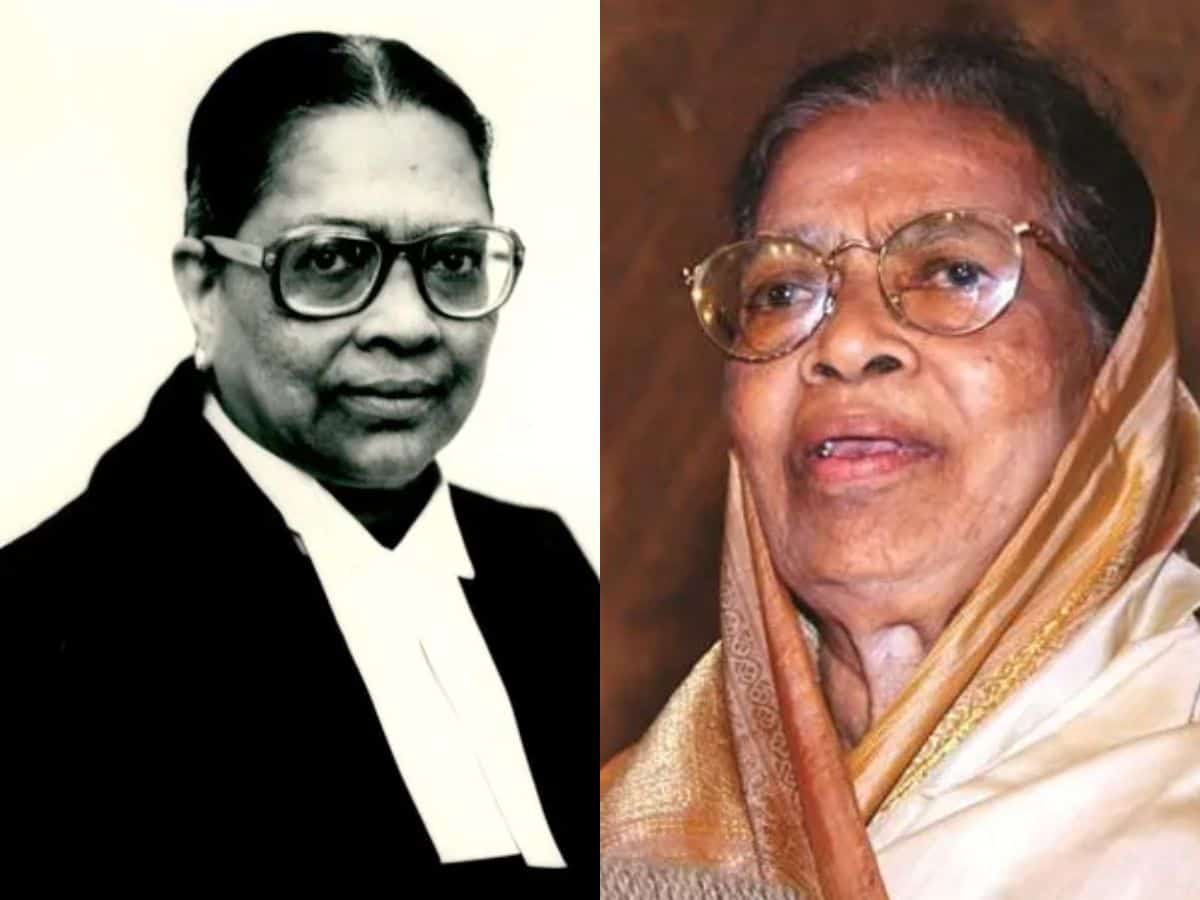
Thiruvananthapuram: Born in a small town in the erstwhile princely state of Travancore in 1927, Justice M Fathima Beevi’s journey to becoming the first woman judge of the Supreme Court and later the Governor of Tamil Nadu is an inspiring example of breaking the ‘glass ceiling’, a term perhaps not commonly used at that time.
Her death on Thursday afternoon at a private hospital in Kollam brought an end to a life that served as an inspiration, especially for women, urging them to perceive restrictive social situations as challenges to overcome.
Role model for addressing gender imbalance
Not only did Justice Beevi pave the way for women to pursue careers in the male-dominated judiciary, but she also became a role model for addressing the gender imbalance in the legal profession.
Justice Beevi had described her elevation to the apex court as the opening of a closed door.
However, without her father, Meera Sahib, urging her — a science student — to pursue a legal career, the title of the first woman judge in the apex court might have gone to Justice Sujata Manohar years later.
Justice Manohar was appointed to the Supreme Court in 1994, two years after Justice Beevi’s retirement.
Initial history
Justice Beevi’s father, a government servant at a sub-registrar’s office, motivated his eldest of eight children to study law instead of pursuing an MSc in Chemistry. He did not want her to become a college teacher or professor in Thiruvananthapuram.
Justice Beevi completed her schooling at Catholicate High School in Pathanamthitta and earned a BSc degree from University College in Thiruvananthapuram.
Initially planning to pursue an MSc in Chemistry, her father’s insistence on her studying law led to her achieve several groundbreaking milestones for women in the legal profession.
She received the Travancore Bar Council gold medal for topping the bar council examination in 1949-50, a notable accomplishment for a diligent and hardworking student.
From that point forward, there was no turning back, as she rapidly ascended the ladder of the legal profession at a time when women lawyers did not get much support and encouragement from society.
After practising law for seven years, Beevi successfully cleared the state public service examination for the position of Munsiff. Subsequently, she was promoted to Subordinate Judge in 1968, Chief Judicial Magistrate in 1972, and District and Sessions Judge in 1974.
She was elevated to the Kerala High Court in 1983 and became a permanent judge there the following year.
SC appointment, footprint in TN politics
Justice Beevi was appointed as a judge of the Supreme Court in 1989 during Rajiv Gandhi’s tenure as Prime Minister. It was after her retirement from the Kerala High Court and amid controversy surrounding the Muslim Women (Protection of Rights on Divorce) Act of 1986.
During her extensive legal career, she handled various cases but is particularly remembered for inviting late AIADMK leader J Jayalalithaa to form the government when she served as Governor of Tamil Nadu.
The decision came up for criticism, given Jayalalithaa’s ongoing corruption cases at that time.
Justice Beevi resigned as Governor of Tamil Nadu in July 2002, hours after the Atal Bihari Vajpayee-led government sought her recall over an alleged failure to uphold the Constitution following the arrest of DMK patriarch M Karunanidhi, a BJP-led NDA partner at the time.
The NDA government perceived her report on the state’s situation as “biased”.
Before serving as the Governor of Tamil Nadu, Justice Beevi was a member of the National Human Rights Commission and the chairperson of the Kerala Commission for Backward Classes.
In 2023, the Kerala government awarded her the Kerala Prabha Award.
Expressing condolences over her demise, Kerala Governor Arif Mohammed Khan said, “Her life is an inspirational story of hard work and determination, and her contributions reflect her profound social commitment. May her soul rest in eternal peace”.
Kerala Chief Minister Pinarayi Vijayan also expressed condolences over Justice Beevi’s death, recalling her journey from overcoming the educational challenges faced by girls to becoming the first woman judge of the Supreme Court.
Justice Beevi had been admitted to the private hospital a few days ago due to age-related ailments and passed away on Thursday afternoon around 12.15 pm, according to an official source.
“Her burial will be held tomorrow (November 24) at the Pathanamthitta Juma Masjid,” the source said.
She was unmarried and is survived by her four younger sisters, with two brothers and a sister predeceasing her, according to a family member.



